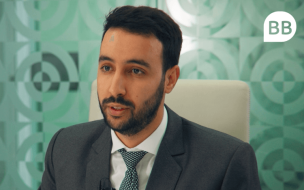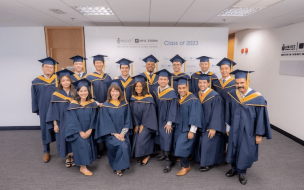She proved them wrong, securing internships at Citi, Goldman Sachs, Morgan Stanley, a job at Nomura, and then a place on Imperial College Business School’s master’s in finance (MiF) course this year.
“The finance industry is changing, but at the senior levels there’s still only a small number of women,” Presiyana says.
Despite great effort to diversify their ranks, banks, asset managers and hedge funds do indeed remain a man’s world. According to figures from Catalyst, fewer than 17% of senior investment bankers are women and they account for fewer than 30% of executives in commercial banking, for example.
Many business schools, an important source of talent for the financial sector, may have contributed to the issue with their own gender imbalance among students.
But Presiyana recognizes that schools can also play a role in addressing the problem of the...
“There’s a wide effort to improve gender representation across the industry, and schools and students are appreciating that diversity drives things forward,” she says.
©Imperial Facebook
Imperial is one of many schools going to great lengths to lure women into their MiF courses, and provide a pipeline of qualified female financiers.
Presiyana was a recipient of a $25,000 scholarship for budding female leaders on offer at the London based school, one of a growing number of financial aid packages schools use to target women, who tend to be paid less than men in finance, and many other industries.
Imperial also welcomes prospective students to ‘Women in Finance’ events on campus, at which they meet current female students and hear from high-flying financiers to give them an insight into what it’s like to be a woman in the industry today.
These strategies appear to be bearing fruit, with Imperial last year reaching gender parity in its MiF program for the first time.
“In the past, the finance industry hasn’t done enough to attract women,” says Dr Lara Cathcart, academic director of Imperial’s MSc Finance. “However, I believe that things are changing.
“There is a lot of effort being put into attracting women to finance. Business schools are an important source of talent for the financial services sector, so we have a pivotal role in addressing the problem and providing the right training to promote women to top positions.”

Thomas Renstrom (pictured right), MiF program director at Durham University Business School, agrees, saying: “Finance has been male-dominated for historical reasons. In recent years, this trend has drastically changed.
“Higher demand for female graduates encourages female students to enter the profession and apply for a MiF. Our MiF has seen over a 20% increase in the proportion of female students in the last five years.”
The proportion of female students on Durham’s course is 79%, according to the Financial Times 2018 rankings.
Frankfurt School of Finance and Management is also striving to place more women in its MiF course. About 30% of the class is female, a figure that the school wants to improve upon.
Frankfurt runs a long-standing event series called ‘Ladies First’. Successful female guest speakers talk to female students and alumni about different career options, financial planning and topics such as time management or salary negotiation.
“The impact on students shouldn’t be underestimated,” says Julia Knobbe, director of Frankfurt’s MiF program. “Just by being there, the female alumnae send out a message to our students: that it is normal for women to pursue a high-profile career in finance.”
Fankfurt is also about to launch a new student-led Women in Business initiative that is designed to help with a successful career.
“We do not want to encourage them to wait for someone to solve these issues for them,” says Julia. “It is important to get together and form networks that will help them to advance their careers in the sector.”
At the University of Exeter Business School, students are also encouraged to join the University of Exeter Women in Business Society, which raises awareness of workplace barriers.
“It helps build confidence among our female students and gives their male peers an understanding of the barriers too,” says Dr Angela Christidis, director of the school’s MSc finance and marketing course (pictured).

“The society provides networking events and hosts insightful talks by experienced female and male entrepreneurs. There are also a range of networks that our alumni can connect with.”
This year, women comprise 62% of all of Exeter’s finance master’s programs. Angela believes this could also be down to the fact that two-thirds of its MSc programs are led by female academics who have a strong track record on research into equality issues, such as the gender pay gap.
Business schools are confident that further progress on closing the gender gap in finance and in their courses abounds. Employment rates on MiF courses are high—usually above 90%—and employers are keen to hire more entry level financial recruits.
“A strong education is always a solid foundation for any career," says Frankfurt’s Angela. "In an area that is (still) dominated by male managers, a formal confirmation of your skills and knowledge through a degree by a top business school gives you a sound basis from which to speak with authority and self-confidence."
Register for free to continue reading
RECAPTHA :
0f
86
e6
f4













The best of our Premium Articles